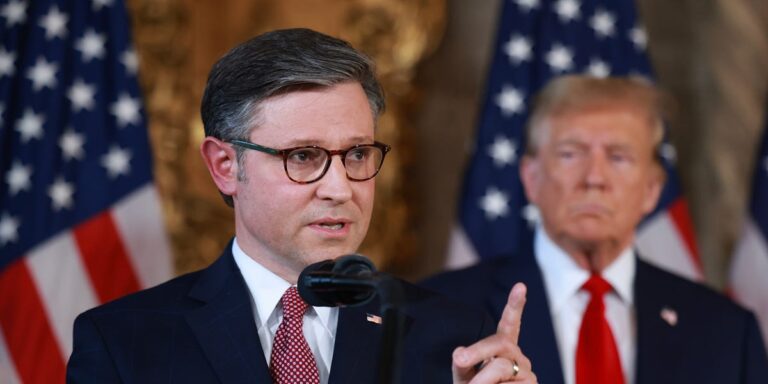Increased Risk of Medicaid Cuts: An Overview
The recent political landscape has heightened concerns regarding the future of Medicaid, particularly as House Speaker Mike Johnson and Republican allies express intentions to modify this crucial program. Millions of low-income Americans could face losing vital health benefits, marking a significant rollback of the Affordable Care Act.
Shifting Republican Rhetoric
Amidst a flurry of news coverage on various political matters, a significant, albeit subtle, shift in Republican discourse around Medicaid has emerged. This was evident during a recent appearance by House Speaker Mike Johnson on Fox News, where he outlined the budget reconciliation plan aimed at financing substantial tax cuts through discretionary spending reductions.
Targeting Medicaid: The New Focus
Johnson’s remarks hinted at an emerging target: Medicaid. With commitments to protect Medicare and Social Security, the GOP appears to be eyeing Medicaid for cuts. Questions remain about the nature and extent of potential reductions, specifically whether these would manifest as stringent “work requirements” or broader efforts to eliminate perceived “fraud, waste, and abuse.”
Johnson’s Controversial Statement
During his Fox News segment, Johnson insisted on the need to “root out fraud, waste, and abuse” in Medicaid, proposing to eliminate coverage for “able-bodied workers” he deemed ineligible. Although presented as a defense of Medicaid, this narrative aligns closely with longstanding criticisms aimed at dismantling the program, thereby threatening its core achievements orchestrated by the Affordable Care Act.
The Purpose and Impact of the Affordable Care Act
The Affordable Care Act was designed to expand health insurance coverage to all Americans, particularly targeting low-income individuals who lacked access to affordable care. By transforming Medicaid into a more inclusive program, the ACA significantly reduced the uninsured rate across the United States—it is vital to consider the potential ramifications of rolling back these expansions.
Risks of Reducing Medicaid Expansion
The claims that expanding Medicaid has caused financial strains on traditional beneficiaries are hotly debated among experts. Many agree, however, that scaling back on federal matching funds could lead to a drastic rise in the uninsured population—potentially affecting millions who rely on Medicaid for basic health care access. Economists warn that states would struggle to fill the funding gaps, leaving many without options for obtaining insurance.
The Political Landscape: A Tug of War
The contentious debate surrounding Medicaid funding is emblematic of the broader divide over health care policy in the U.S. As Republicans navigate internal opposition and the potential fallout from cuts, the balance between fiscal conservatism and the need for comprehensive health care remains precarious. High-profile objections from figures like Senator Josh Hawley highlight the importance of maintaining Medicaid expansion in states that have benefited from it.
In conclusion, as discussions surrounding Medicaid funding intensify, the implications for millions of Americans hang in the balance. The current trajectory could redefine health care access in the U.S., raising questions about the commitment to healthcare as a fundamental right.
